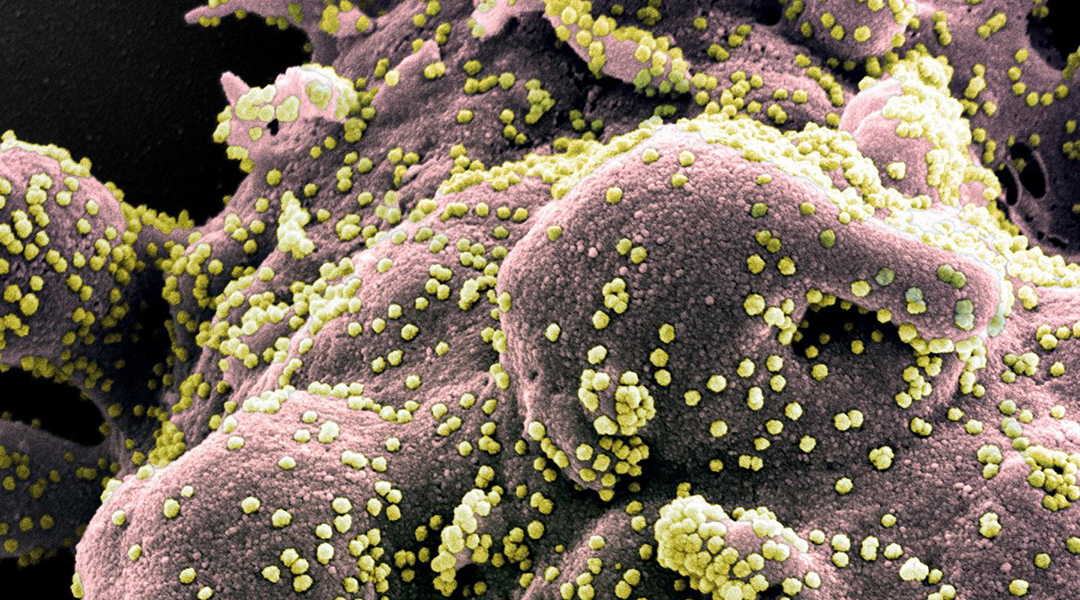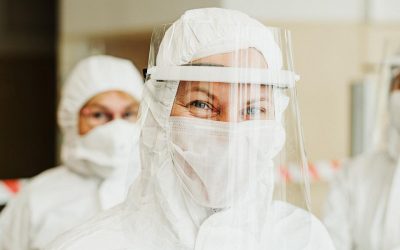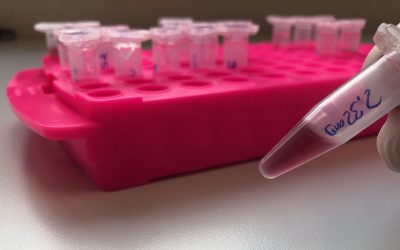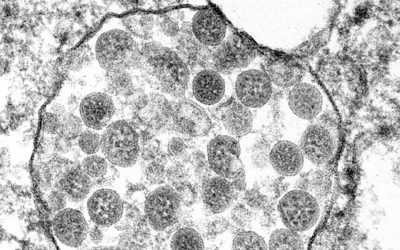SARS-CoV-2 virus particles (yellow), isolated from a patient. Image credit: NIAID
The current COVID-19 pandemic has hit vulnerable communities such as the elderly and those with pre-existing conditions the hardest. Reasons for this trend vary and outcome can depend on an individual, but a main concern among the medical and scientific community has been; how effective will a new vaccine be in protecting the elderly from a SARS-CoV-2 infection?
In general, vaccinations in elderly groups tend to be less effective. The flu shot, for example, loses efficacy in older people as it works by stimulating the patient’s own immune system to fight off infection. As we age, so do our immune systems, and they can lose their edge when it comes to fighting the flu and other illnesses — though it’s still important for people over 65 to get vaccinated every year to minimize symptom severity and risk of hospitalization.
However, good news came this week with a study published in the New England Journal of Medicine in which Moderna’s experimental COVID-19 vaccine, mRNA-1273, showed a strong immune response in patients aged 71 years or older.
mRNA-1273 is a messenger RNA (mRNA) vaccine that is meant to elicit a natural immune response in the body without the harmful effects of a real infection. It exposes the virus’ genetic code to the body’s cells, which then allows the immune system to mount a response and prepare the body to shut down an actual infection if it ever were to happen. The vaccine is now in Phase 3 clinical trials and is a front runner in the race to find an effective vaccine to protect the population against SARS-CoV-2.
Since older adults are more vulnerable to complications of COVID-19, understanding how the vaccine affects them is a critical part of measuring its safety and efficacy. Statistics gathered by the CDC report that people 50 to 64 years old are four times more likely to be hospitalized and 30 times more likely to die from COVID-19 compared to their baseline group of people ages 18 to 29. Those 65 to 74 years of age are five times more likely to be hospitalized and 90 times more likely to die.
Moderna’s Phase I clinical trial began in March 2020 at Emory University in Atlanta, and was expanded to include elderly, healthy volunteers one month after it began. Participants were enrolled in Atlanta, Seattle, and Bethesda, Maryland, and included 20 adults between the ages of 56 and 70 years, and 20 adults aged 71 years or older. The trial involved a two-dose vaccination, where half the volunteers in each group were given either a low (25 μg) or high (100 μg) dose of the vaccine, and after approximately one month, both groups were given a second inoculation of the same dosage.
Results from the current study indicate that the vaccine was well-tolerated in older patients and that the vaccine elicited an immune response comparable to that seen in younger age groups. The 100 μg dose induced a stronger immune response than the 25 μg dose, which according to the authors support the continued evaluation of the 100 μg dose level and two-dose regimen in a large phase 3 trial.
Overall, these preliminary findings show that in a small group of participants, adverse effects associated with the mRNA-1273 vaccine were mainly mild or moderate in older adults. While this is an important finding, to date, no protection against COVID-19 has been demonstrated, and a more diverse and larger patient group is required to assess the global safety and efficacy of mRNA-1273, which will be done in an ongoing Phase 3 trial.
Reference: Evan J. Anderson, et al. Safety and Immunogenicity of SARS-CoV-2 mRNA-1273 Vaccine in Older Adults, New England Journal of Medicine (2020). DOI: 10.1056/NEJMoa2028436

















